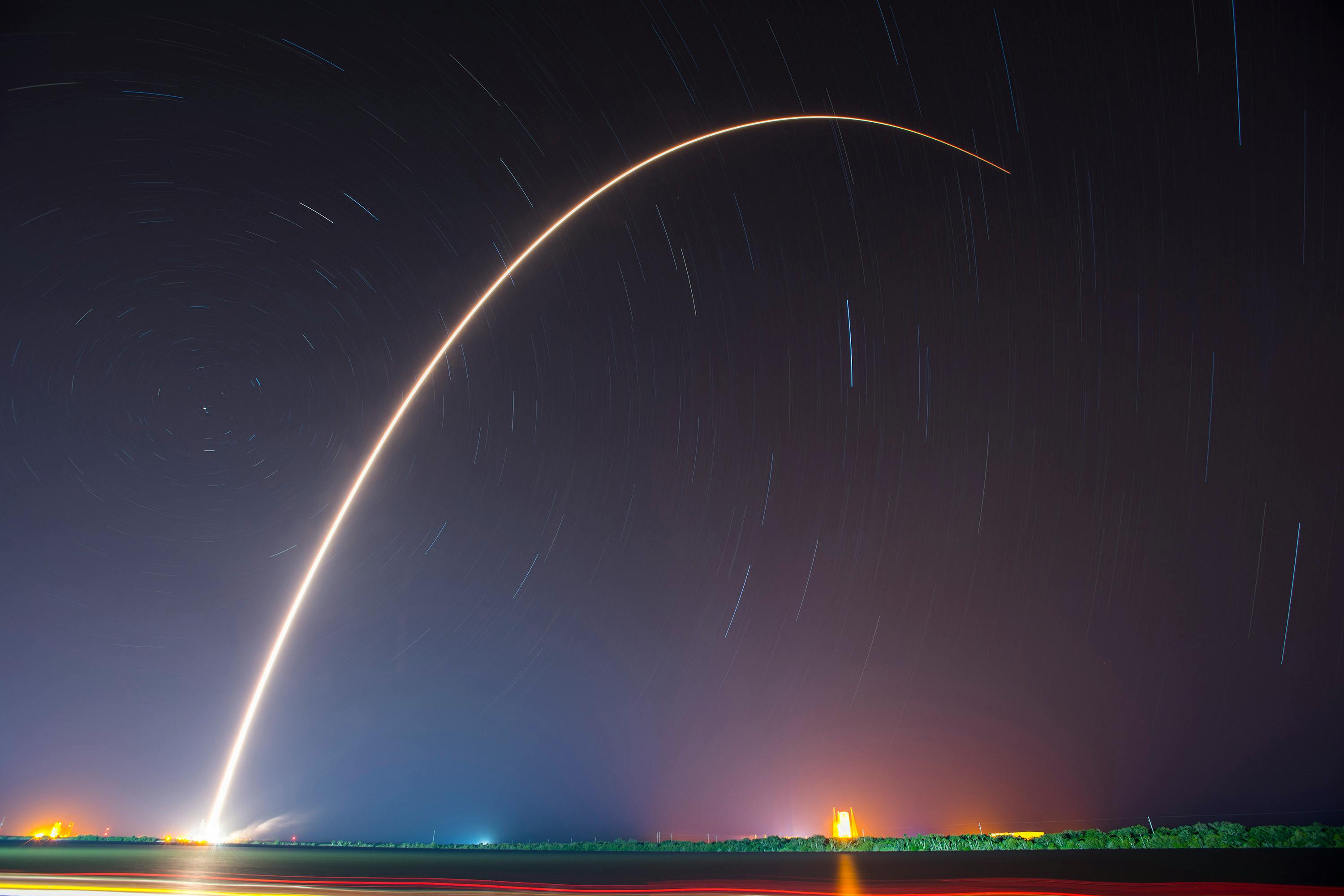· space brief · 5 min read
Space Brief 7 Feb 2025
Today's highlights include significant legal disputes in military satellite contracts, strategic investments in the defense space sector, and updates on major military budget developments impacting space capabilities.

📄Top Stories
Significant developments include legal challenges in the military satellite sector as companies dispute contract decisions. Investment strategies in the rapidly growing defense-focused space market come under scrutiny. Budgetary concerns affecting space capabilities are highlighted in the context of broader national defense expenditures.
📰Detailed Coverage
Geost Sues Sierra Space Over Military Satellite Contract
In a controversial legal battle, Geost has filed a lawsuit against Sierra Space, accusing the latter of breaching a contract tied to a military satellite program. Geost claims that Sierra Space leveraged their partnership to secure a Space Development Agency contract only to switch suppliers afterward. This dispute reflects the intense competition and strategic maneuvers within the defense satellite industry amid rising demand for military-grade space technologies.
The lawsuit underscores the importance of reliable partnerships in the growing military satellite market and serves as a reminder of the legal complexities that can arise when navigating multi-organizational technology contracts. Such disputes can influence procurement strategies and satellite development timelines.
Read the full story: SpaceNews
Caution Urged in Defense-Focused Space Boom
Investors are advising caution even as the defense-focused space sector experiences significant growth. Venture capitalists acknowledge the opportunities posed by escalating Pentagon investments but caution startups against a reckless rush reminiscent of previous financial bubbles. The emphasis is on sustainable growth strategies that align with long-term governmental funding and strategic defense needs.
With increased governmental focus on advancing space-based defense capabilities, informed investment decisions will be crucial to avoid overvaluation and misallocation of resources. This resonates with satellite tracking stakeholders who need to assess the evolving competitive landscape and innovation cycles.
Read the full story: SpaceNews
India’s Budget Boost and Impact on Defense Purchases
India has boosted its defense budget by 9.5%, but concerns have emerged that rising pensions are hindering investment in critical weapons systems, including satellites. Analysts highlight the need for modern technology such as drones and air defense systems to maintain geopolitical stability and bolster national security.
This budgetary allocation affects satellite procurement and deployment, requiring strategic prioritization to ensure that India’s defense infrastructure, including space-based assets, is adequately strengthened.
Read the full story: Breaking Defense
Navy Advances Mine Countermeasures with New Contracts
The U.S. Navy has awarded multiple contracts dedicated to enhancing its mine countermeasure capabilities, signaling a shift towards modernizing its fleet and associated technologies. These advancements will support the decommissioning of older systems such as legacy helicopters and Avenger class ships, paving the way for new tech integration.
This modernization effort indicates a broader trend of incorporating advanced technologies within naval operations, which includes upgrading space-based surveillance for maritime security.
Read the full story: Breaking Defense
🛰️Satellite Spotlight
- Satellite Name: IRIDIUM 63
- NORAD ID: 25286
- Launch Date: 1998-04-07
- Mission: Communication
- Orbit: Inclination 86.4025°, Period 98.7 minutes, Eccentricity 0.0001982
- Operator: Iridium Communications
- Fun Fact: Part of the Iridium satellite constellation known for enabling global satellite communications, IRIDIUM 63 supports communication across pole-to-pole routes that are otherwise challenging for conventional satellites.
Current TLE Data:
1 25286U 98021B 25037.84695738 .00000798 00000+0 26605-3 0 9995
2 25286 86.4025 136.8079 0001982 91.7416 268.4008 14.36368446405138Track this satellite in real-time on our web app: Track IRIDIUM 63
🚀Upcoming Space Launches
February 7
- SpaceX Falcon 9:
- Starlink Group 12-9 from Cape Canaveral Space Force Station, FL, USA (18:52 UTC) A batch of 21 satellites for the Starlink mega-constellation - SpaceX’s project for space-based Internet communication system.
February 8
- Rocket Lab Electron:
- IoT 4 You and Me (Kinéis 16-20) from Rocket Lab Launch Complex 1, Mahia Peninsula, New Zealand (20:43 UTC) Fourth batch of five satellites for the French Kinéis IoT constellation designed to operate with 25 nanosatellites of 30 kg each.
February 10
- SpaceX Falcon 9:
- Starlink Group 11-10 from Vandenberg Space Force Base, CA, USA (00:03 UTC) A batch of satellites for the Starlink mega-constellation - SpaceX’s project for space-based Internet communication system.
February 11
-
China Aerospace Science and Technology Corporation Long March 8A:
- Demo Flight from Wenchang Space Launch Site, People’s Republic of China (09:22 UTC) Demonstration flight of the Long March 8A rocket with upgraded engines and a new larger second stage. Payload is TBD.
-
SpaceX Falcon 9:
- Starlink Group 12-18 from Cape Canaveral Space Force Station, FL, USA (17:00 UTC) A batch of satellites for the Starlink mega-constellation - SpaceX’s project for space-based Internet communication system.
February 14
- SpaceX Falcon 9:
- Starlink Group 12-8 from Cape Canaveral Space Force Station, FL, USA (17:26 UTC) A batch of satellites for the Starlink mega-constellation - SpaceX’s project for space-based Internet communication system.
February 26
- Arianespace Ariane 62:
- CSO-3 from Guiana Space Centre, French Guiana (16:24 UTC) The CSO-3 satellite is part of the high-resolution optical imaging satellites for the French military.
February 27
-
SpaceX Falcon 9:
- Nova-C IM-2 & Lunar Trailblazer from Kennedy Space Center, FL, USA (00:17 UTC) This mission includes the Nova-C lunar lander developed by Intuitive Machines, carrying a NASA payload for the first demonstration of in-situ resource utilization on the Moon.
-
Russian Federal Space Agency (ROSCOSMOS) Soyuz 2.1a:
- Progress MS-30 (91P) from Baikonur Cosmodrome, Republic of Kazakhstan (21:24 UTC) Progress resupply mission to the International Space Station.
February 28
- Rocket Lab Electron:
- BlackSky Gen-3 1 from Rocket Lab Launch Complex 1, Mahia Peninsula, New Zealand (00:00 UTC) BlackSky Gen-3 Earth-imaging satellites.
Note: Launch dates and times are subject to change due to technical or weather considerations.

Maurice Stellarski



